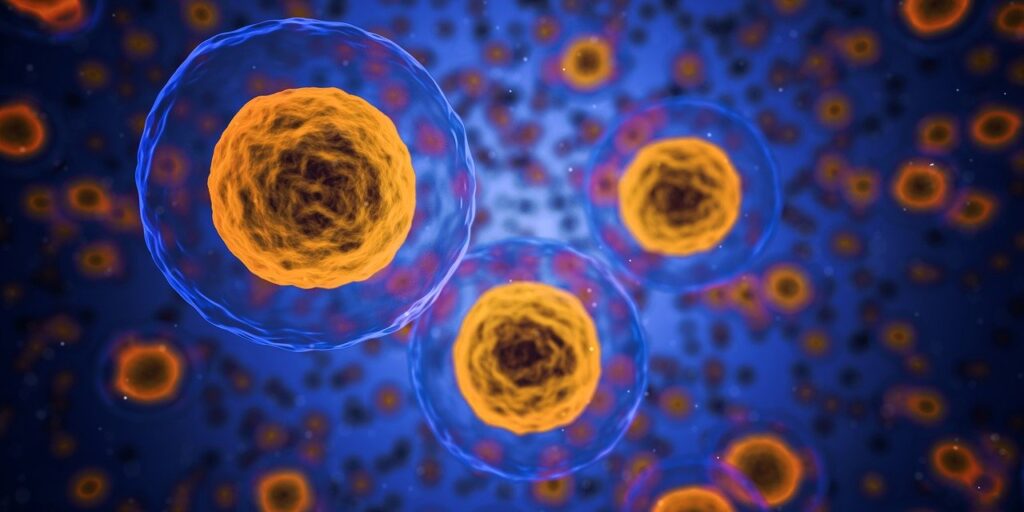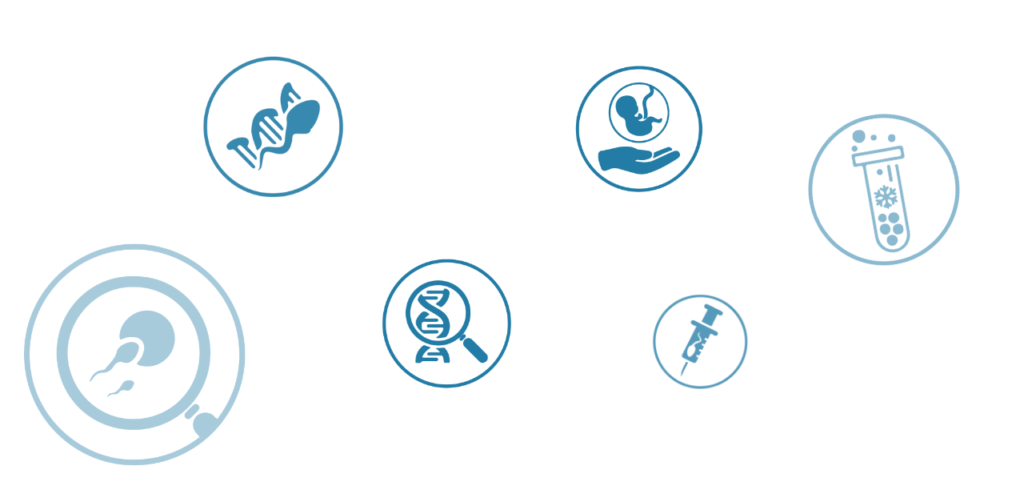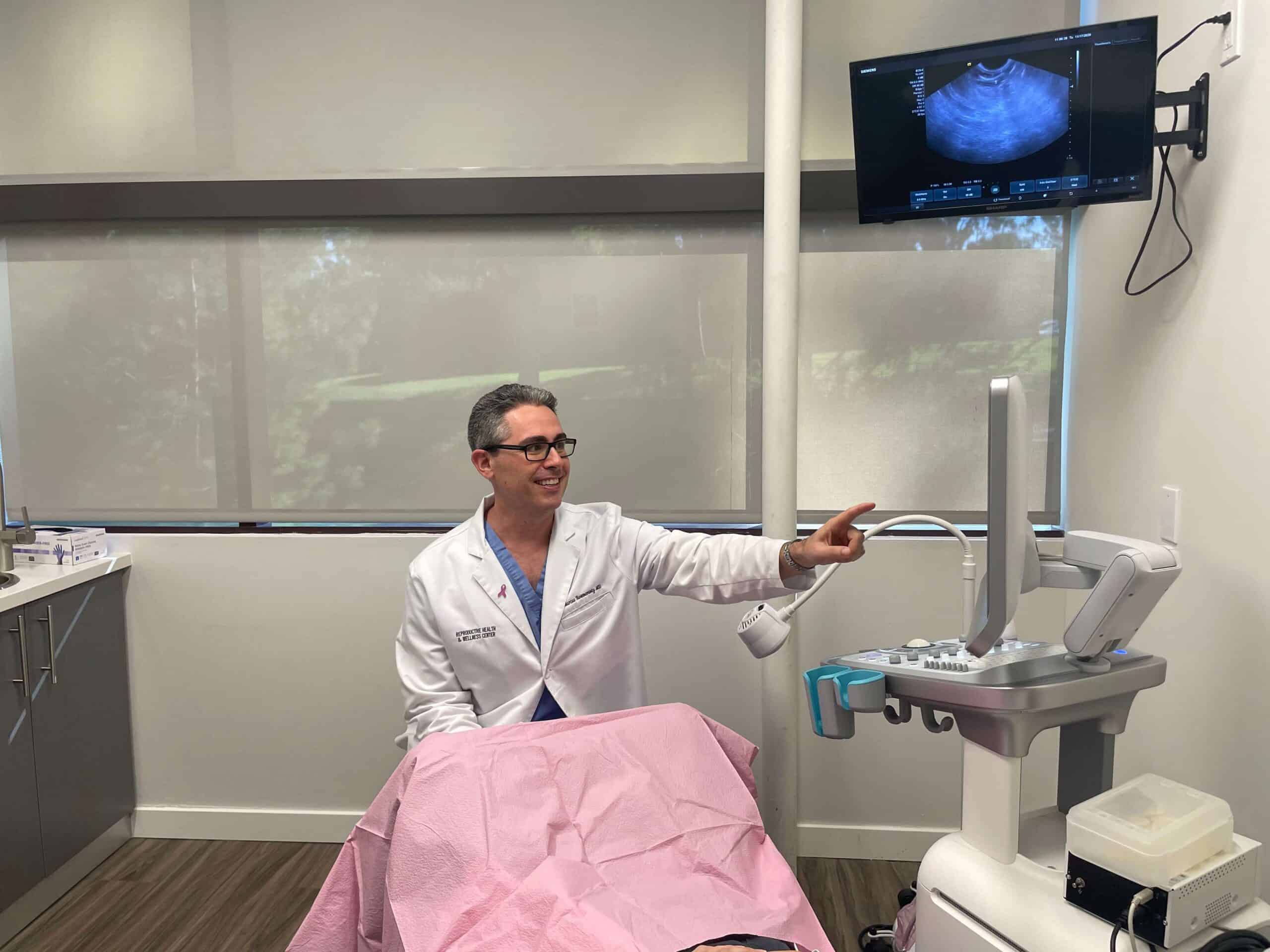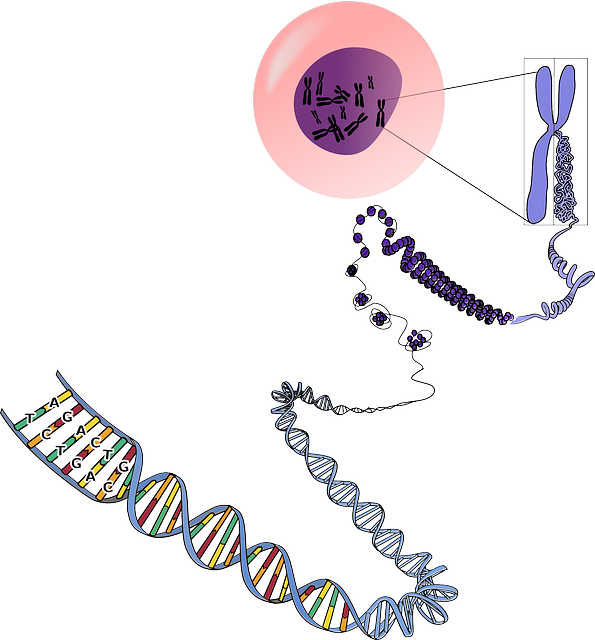
PGT at Reproductive Health and Wellness Center
PGT Overview
PGT Overview

When working with your doctor to make sure you’re both doing everything you can to have the best chances of success with IVF, you may be recommended PGT as a part of your IVF cycle.
(PGT-A) Preimplantation Genetic Testing for Aneuploidy

These abnormalities in an embryo could be due to genetic diseases passed down from parent to child, or could be random mutations in an egg or sperm. PGT testing is done at the blastocyst stage, about day 5 of an embryo’s development after an egg has been fertilized in the lab.
Your fertility doctor gently takes just a few cells from the embryo (a harmless procedure to the embryo) and then tests their DNA to determine if there are any signs of abnormalities.
There are three types of PGT tests that your doctor may perform. These are PGT-A, PGT-SR, and PGT-M.
This could be passed down from the parents directly or through recessive conditions and may result in diseases like Huntington’s disease or cystic fibrosis.
(PGT-A) Preimplantation Genetic Testing for Aneuploidy

Your fertility doctor gently takes just a few cells from the embryo (a harmless procedure to the embryo) and then tests their DNA to determine if there are any signs of abnormalities.
There are three types of PGT tests that your doctor may perform. These are PGT-A, PGT-SR, and PGT-M.
This could be passed down from the parents directly or through recessive conditions and may result in diseases like Huntington’s disease or cystic fibrosis.
PGT-M - Preimplantation Genetic Testing for Monogenic/Single Gene Disorder

PGT-M - Preimplantation Genetic Testing for Monogenic/Single Gene Disorder
PGT-A looks for random abnormalities resulting in sudden mutations or poor egg or sperm quality. These have nothing to do with family history and are typically the abnormalities that result in conditions like Down’s syndrome or could result in the embryo not surviving.
PGT-SR looks for chromosomal abnormalities that are hereditary, meaning that they would be inherited from parents. These two tests can be done at the same time.
PGT-M is a separate test designed to find specific genetic changes that are usually the result of a single genes mutation.
Gender Selection

Gender Selection

If a parent or donor is known to have a mutation associated with hereditary cancer syndrome, already has a child with a single gene disorder, carries an X-linked condition, or has an autosomal dominant condition, doctors usually recommend this test to ensure a successful pregnancy.
It has been shown that PGT can help increase the success rate of IVF in infertile couples and women over 35 who have had trouble getting or staying pregnant. At Fertility Finders, we want to help you take advantage of everything the fertility field has to offer so you can get pregnant fast and begin this new chapter in your life.
Those who are struggling with infertility and choose to take advantage of this advancement in fertility technology often have peace of mind that they are utilizing every tool in the scientific arsenal to give them the highest likelihood of successfully getting pregnant and having a healthy pregnancy and baby.
Sex Selection Can Be Beneficial For
Speak with a
Fertility Specialist
What questions can we help answer today?
